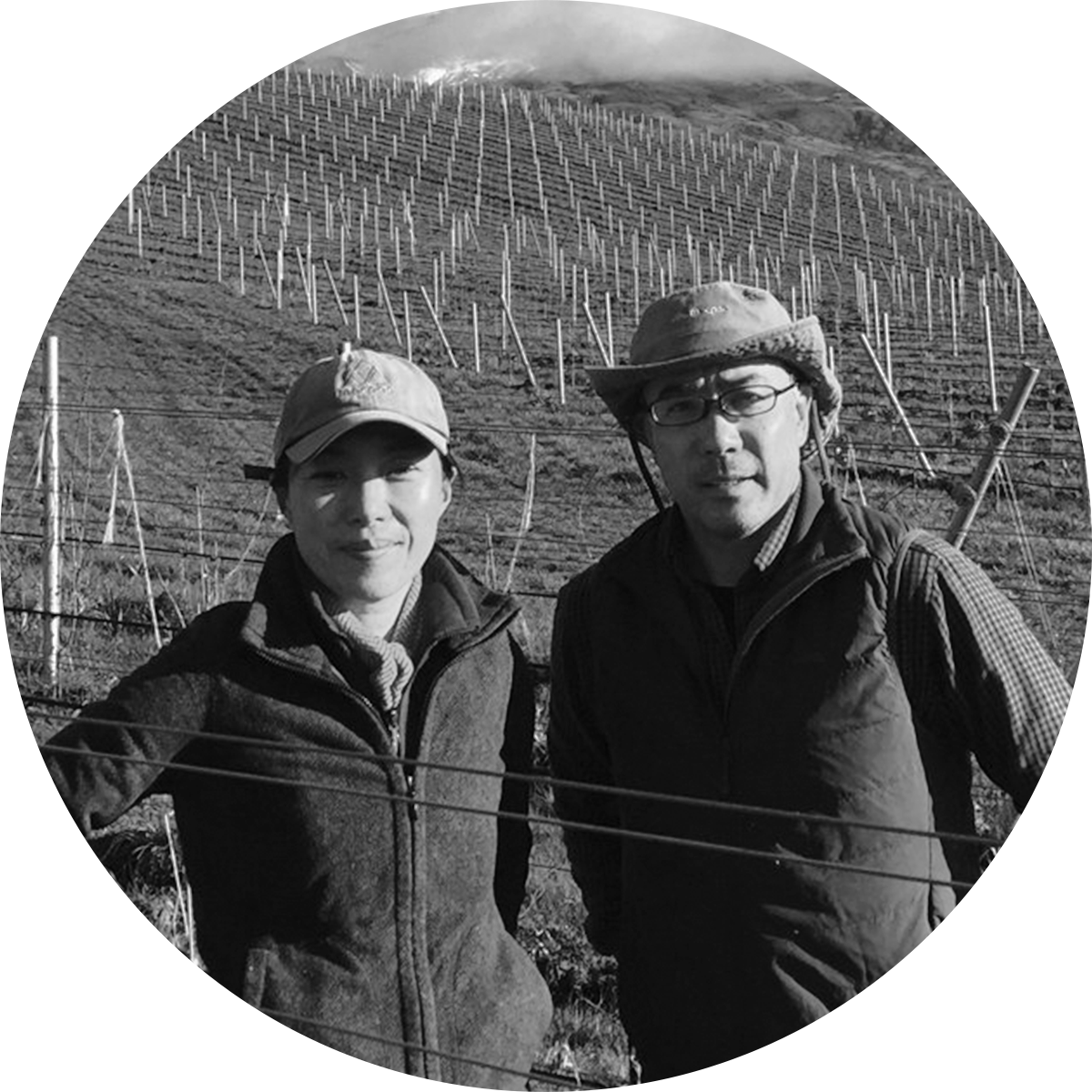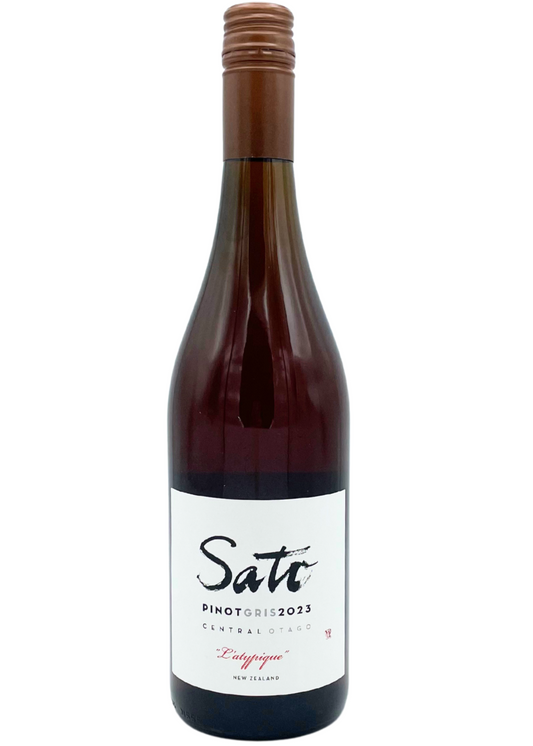SATO WINES
YOSHIAKI & KYOKO SATO
Central Otago, New Zealand
"We believe grape vines need to be grown in organic ways (preferably in Biodynamic way) and grapes have to be transformed to wine with minimum intervention by human hand, chemicals or additives. In this way, we consider, natural microbiological balance is maintained in the vineyard and the wine in process in the winery so that the real character of the terroir where the grape vines grow is truly expressed in wine in a pure manner." - Yoshiaki Sato
After working in the baking industry for 12 years, Yoshiaki and his wife Kyoko decided to quit their jobs and gain hands-on experience by doing vintages in Burgundy, the Loire and Alsace. Only to move back to New Zealand in 2008 to start their own label under Sato Wines: elegant, precise wines with minimal intervention. While sourcing fruit from organic vineyards, they purchased their own farm in the Pisa sub-region in 2016, under the label La Ferme de Sato. Sato Domaine's wines, representing the culmination of their dream of growing and making great wine in Central Otago. After searching for five years, they found the perfect site on a peninsula of the Pisa Ranges, when they finally proceeded to plant some vines following biodynamic methods. The first release of La Ferme de Sato was in 2019.
MORE OF SATO WINES
-
Sato Pinot Gris L'Atypique 2023
Regular price HK$290.00Regular priceUnit price / per -
Sato Riesling 2023
Regular price HK$270.00Regular priceUnit price / per -
Communal Table: Dining with Natural Wine and Makgeolli 15.01.2025
Regular price HK$450.00Regular priceUnit price / per
BACKGROUND OF NATURAL WINE IN NEW ZEALAND
New Zealand's natural wine scene is an exciting chapter in the country's winemaking narrative, marked by a commitment to sustainability and a return to traditional, minimal-intervention practices. While New Zealand's wine industry gained international acclaim for its Sauvignon Blanc and Pinot Noir, the natural wine movement has added a unique dimension, drawing inspiration from both ancient winemaking methods and the country's pristine terroir. Regions like Marlborough, Central Otago, and Martinborough have become focal points for natural wine enthusiasts, where winemakers harness the expressive qualities of local grape varieties such as Sauvignon Blanc, Pinot Noir, and Chardonnay. With a blend of innovation and reverence for the land, New Zealand's natural wine producers are contributing to the global conversation on sustainable viticulture and producing wines that encapsulate the essence of their terroir.
Organic, Biodynamic and Natural wine. What’s the difference?
To understand this concept and its various ramifications, it is necessary to keep something clear in mind: before the 20th century and the spreading of affordable synthetic fertilisers, all farming was organic. When the shift to the use of synthetics and pesticides happened, it became necessary to diversify traditional organic farming from the new modern farming.
ORGANIC WINE
Simply put, organic farming forbids the use of synthetic fertilisers, synthetic pesticides, herbicides, or genetically modified organisms. The basic requirements are generally specific and engage the farmers not to use any chemical fertilisers and other synthetic products in the vineyard. It does not prevent the vintner from using the conventional winemaking process after harvesting.
BIODYNAMIC WINE
Let’s take organic farming one step further: Biodynamic. The creator of this agricultural system is the Austrian philosopher Rudolf Steiner, who developed the principles of biodynamics in a series of lectures given in 1924 in Germany. Here lies the foundation of true organic wines, with a strict limit in the use of additives, stringent requirements and at the end obtaining a biodynamic certification.
NATURAL WINE
The previous definitions are usually, and rightfully, associated with it, because most natural wine is also organic and/or biodynamic. But not vice versa!
Natural wine is wine in its purest form, simply described as nothing added, nothing taken away, just grapes fermented. No manipulation whatsoever, minimal intervention both in the vineyards and in the winery. Healthy grapes, natural yeast and natural fermentation, with no filtration nor fining. Sounds easy, right? However, making natural wine is unforgiving and it requires a bigger amount of work than conventional wine. To this day, natural wine has no certification yet.








